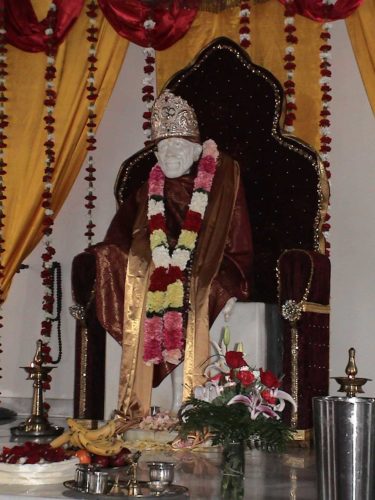God, the manifestation of the Supreme is seen as the savior from sin and the way to the eternal life. The core of the message delivered by different messengers is the same. As if confirming to an unseen doctrine, each of the messenger appeared to have spoken to those under different conditions of life, over the time.
Jesus came proclaiming the Kingdom of God. But unlike John the Baptist, or the Essenes, or many others of his day, he did not envision the Kingdom of God descending miraculously from Heaven. The arrival of the Kingdom would not mean the end of the world or the destruction of Israel’s enemies. Instead, he said, “The Kingdom of God is not coming with signs to be observed; nor will they say, ‘Lo, here it is!’ or ‘There!’ for behold, the Kingdom of God is in the midst of you.” (Luke 17:20,21) The Kingdom had already arrived, and it was a spiritual community consisting of Jesus and all those who centered themselves in God. The Kingdom of God was always meant to be a this-worldly movement, which would bring a measure of Heaven to earth through the lives and actions of those who lived in God.
Just like Sainath had said, “poverty is Kingship”, Jesus said, “Blessed are you poor, for yours is the Kingdom of God. Blessed are you that hunger now, for you shall be satisfied. Blessed are you that weep now, for you shall laugh. But woe to you that are rich, for you have received your consolation. Woe to you that are full now, for you shall hunger. Woe to you that laugh now, for you shall mourn and weep.” (Luke 6:20, 21, 24-26).
Baba asked His followers to cast their burden for Him to carry. Similarly, Jesus said, “Come to me, all who labor and are heavy laden, and I will give you rest. Take my yoke upon you, and learn from me; for I am gentle and lowly in heart, and you will find rest for your souls. For my yoke is easy, and my burden is light.” (Matthew 11:28-30)
Baba, like Jesus, said that God is great and kind and taught us to be likewise. “God is kind to the ungrateful and the selfish. Be compassionate, even as your Father is compassionate.” (Luke 6:35b,36) The word translated “compassionate” is derived from a word, which means “wombish.” God’s compassion is nourishing and life giving like the womb to an unborn child.
Jesus taught His followers to abandon the broad way of organized religion, which tells us to believe such and such and do such and such to win the favor of God.. Jesus said to abandon the way of anxiety, for we already have the favor of God. Baba’s advice to the fasting lady is a perfect example of this similarity between Jesus and Baba. But knowing that God already loves us, what are we to do to live good lives? And how do we participate in the Kingdom of God in the here and now? First of all, Jesus said to love. “… you shall love the Lord your God with all your heart, and with all your soul, and with all your mind, and with all your strength.” (Mark 12:30) And he also said, “You shall love your neighbor as yourself. There is no other commandment greater than these.” (Mark 12:31) Secondly, he said to have a clean heart. “Blessed are the pure in heart, for they shall see God.” (Matthew 5:8) [By seeing God, he means primarily the experience of God’s presence in this life.]
The Mango Miracle in Shri Sai Satcharitha is an interesting one. Baba said to Damu Anna that those who would eat the mangos would die! The way of death is a metaphor for a transformation deep inside, in which we turn away from that which separates us from God. Jesus spoke of both the self and the world as the two great spiritual obstacles. He said to “deny self.” And he told us that it profits us nothing to gain the whole world, and lose our way spiritually. (Luke 9:25) Therefore, to the self and the world, we must die. For the self-absorbed self is filled with narcissism, and greed and fear, jealousy and cruelty. But the self which is centered in God, loves others as much as it loves its own self. It is kind and compassionate and does not think itself better than any other.
On this Thursday, let us contemplate on the universal nature of Baba’s message that permeates beyond the divisions of religions.
(Inspired by and partly in reference to Robert Jenkins from “Observations on God, Life and the Human Journey”)


